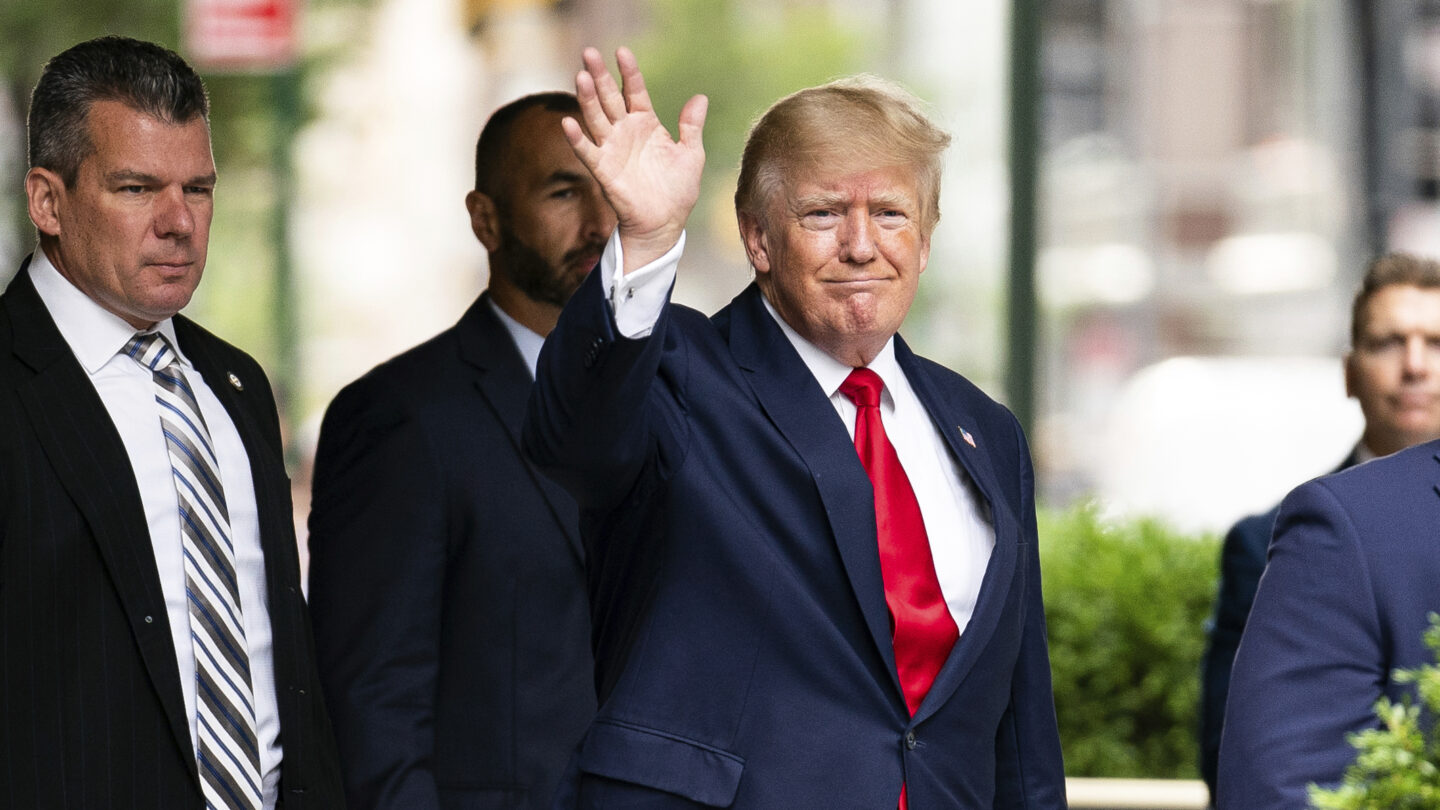Donald Trump refused Wednesday to answer questions posed to him by the New York attorney general in her investigation into the former president’s business dealings.
Trump invoked the Fifth Amendment in response to New York Attorney General Letitia James, saying in a later statement that “I once asked, ‘If you’re innocent, why are you taking the Fifth Amendment?’ Now I know the answer to that question. When your family, your company, and all the people in your orbit have become the targets of an unfounded politically motivated Witch Hunt supported by lawyers, prosecutors and the Fake News Media, you have no choice.”
So what is the Fifth Amendment and what rights does it protect?
A person only has to answer to a grand jury
The Fifth Amendment creates a number of individual rights for both civil and criminal legal proceedings. It states that a person only has to answer for their crimes when “on a presentment or indictment of a Grand Jury.”
There are exceptions for cases held in military courts or for those actively serving in the military.
Additionally, a person cannot be called to stand as a witness against themselves in a criminal court case, cannot be prosecuted twice for the same offense and should not “be deprived of life, liberty, or property, without due process of law.”
What is the history of the Fifth Amendment?
The clauses of the amendment have different origins.
According to Congress, the concept of a grand jury comes from England and Athens, Greece. It is thought to first be mentioned in the Charter of Liberties and Privileges of 1683, passed by the New York General Assembly and established 12 counties, rules for elections and colonists’ rights.
“Its adoption in our Constitution as the sole method for preferring charges in serious criminal cases shows the high place it held as an instrument of justice,” James Madison wrote in a draft of the Bill of Rights.
The origins of the concept of double jeopardy are harder to track down, while the self-incrimination clause stems from the Latin phrase “nemo tenetur seipsum accusare,” meaning “no man is bound to accuse himself.”
Former Trump advisers have used the Fifth Amendment in their investigations
Trump’s former associates previously invoked their Fifth Amendments in investigations that spurred from their time as key players during his presidency.
Former Trump national security adviser Michael Flynn refused to hand over documents subpoenaed by the Senate Intelligence Committee, which was looking into Flynn’s interactions with Russian officials as part of its probe into Russia’s interference in the 2016 presidential election.
Trump’s longtime attorney, Michael Cohen used his Fifth Amendment right in a civil lawsuit filed by adult entertainer Stormy Daniels, which named Cohen as a defendant. Daniels, whose real name is Stephanie Clifford, said she had an affair with Trump over a decade ago, and signed a confidentiality agreement with Cohen days before the 2016 election, in exchange for $130,000.
Copyright 2022 NPR. To see more, visit https://www.npr.org.
9(MDAxODM0MDY4MDEyMTY4NDA3MzI3YjkzMw004))

9(MDAxODM0MDY4MDEyMTY4NDA3MzI3YjkzMw004))








